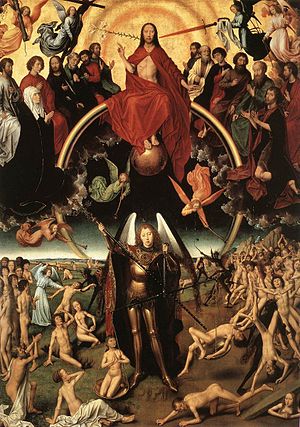"Pope Gregory dictating Gregorian Chant,"
Today is the feast of Pope St. Gregory the Great (circa 540 -604 AD), who sent St. Augustine of Canterbury to evangelize England, and is also credited with standardizing the mainstream form of Western plainchant, which is named "Gregorian Chant" in his honor. Tradition also credits St. Gregory with composing Dies Irae, a Latin hymn used for centuries in the Requiem Mass. According to Peter the Deacon, Gregory's disciple and friend, the inspiration for Dies Irae came to Gregory by way of a dove. Indeed, Peter the Deacon claims that all of Gregory's writings were inspired in this way, which is why Gregory is usually depicted with a dove on his shoulder.
In the wake of Vatican II the funeral rite was revised, and Dies Irae was cut. Cardinal Anibale Bugnini, a leading figure in the reform, explained why:
"They got rid of texts that smacked of a negative spirituality inherited from the Middle Ages. Thus they removed such familiar and even beloved texts as the "Libera Me, Domine", the "Dies Irae", and others that overemphasized judgment, fear, and despair. These they replaced with texts urging Christian hope and arguably giving more effective expression to faith in the resurrection."
"Last Judgment," Hans Memling c 1467 AD
Judgment is undeniably a fearful thing, though in my view ignoring it altogether is mighty unwise.


No comments:
Post a Comment